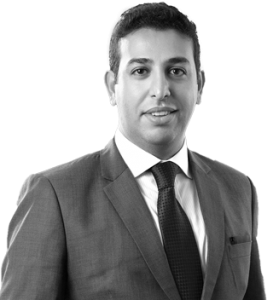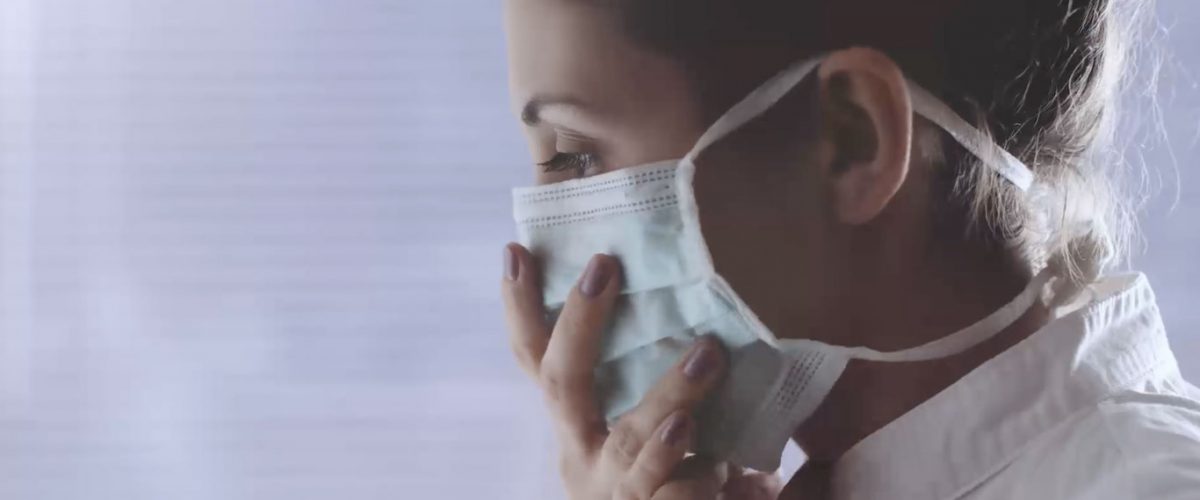United responsex
The COVID-19 pandemic has had an unprecedented impact on society across the globe. Here, we look at some of the things the Firm has done to help organizations responding to the crisis and those in need.
Our Cairo office made a truly lifesaving difference when we joined a COVID-19 initiative led by the American Chamber of Commerce in Egypt (AmCham Egypt) in coordination with the United Nations Children’s Fund (UNICEF).

“It’s been a privilege to contribute to the national response to this unprecedented crisis.”
TAREK MOHANNA,
LOCAL PARTNER,
CAIRO
White & Case is a member of the initiative’s taskforce, which is managing the provision of personal protective equipment (PPE) and essential respiratory ventilators. The taskforce has also raised more than $8 million to buy essential frontline supplies, including a $20,000 donation from the Firm to buy one of the ventilators.
In addition to purchasing ventilators, the funds raised by the initiative’s taskforce are being directed towards the refurbishment of more than 200 previously faulty ventilators and to buy essential PPE for Egypt’s healthcare system.
Local Partner Tarek Mohanna explains: “We’ve worked with AmCham Egypt very closely over the years and we were only too delighted to help.
“While some businesses are understandably holding back from donating money with so much uncertainty over the global economy, I’m proud to say we responded immediately.
“It’s an endorsement of the commitment we have to the Egyptian market and society in general.”
As well as donating the ventilator, the Firm has also been a key player in the fundraising effort.
Tarek says: “Many of our clients agreed to donate – most notably Hassan Allam Holding who contributed $2.2 million, and CI Capital, who donated more than $65,000.
“It’s been a privilege to contribute to the national response to this unprecedented crisis and to see the way that we, our clients, taskforce members and the wider business community have worked so closely together for the greater good.
“I’m sure it has only strengthened our already strong relationship with AmCham Egypt, our other clients and members of the business community at large.”
Analyzing emergency decrees for the IFRC
The Firm also helped the International Federation of the Red Cross and the Red Crescent (IFRC) in its response to the COVID-19 pandemic by completing global research into the restrictions and exemptions of emergency decrees introduced by governments across the globe. More than 200 lawyers and legal staff from 33 offices researched 84 countries as part of the project.

“This is exactly the type of project that reflects the Firm’s values and uses our global footprint to make a difference.”
CHARBEL ABOU CHARAF,
LONDON PARTNER
As the scope of the outbreak became clear, we contacted the Federation to offer assistance.
Isabelle Grainger of the IFRC says: “Our mission to protect human dignity relies on us being able to respond to international emergencies quickly through the free movement of our people and resources.
“While we fully understand governments around the world need to introduce emergency restrictions and decrees, we recognize that these measures can sometimes create hurdles that stand in the way of us delivering aid to the areas that need it most.
“That’s where the Firm has made such a big difference. You researched and reported back on the legal implications of emergency decrees introduced in the countries we serve, so we could see where our people and supplies had exemption from quarantine laws and where there were restrictions on imports and exports.
“When we found that the decrees could jeopardize our ability to function, the research also provided us with the knowledge we needed to seek exemptions where necessary.
“For example, our appeal to the European Union played a part in it creating exemptions on the cross-border movement of personal protective equipment for international organizations.”
As well as using the research to help its own operation, the IFRC also hopes the study will help governments to understand the implications of emergency decrees, learn from each other and to improve their own response to the pandemic.
London Partner Charbel Abou Charaf who helped supervise the Firm’s research, says: “It was amazing to see the commitment of the many people who wanted to work on this project.
“The people who raised their hand to help included legal assistants, paralegals, trainees, junior and senior lawyers from offices across the network.
“Given the nature of the pandemic and the importance of the IFRC’s mandate, we understood the urgency of the research and turned it around quickly yet in a comprehensive and practical way. It was a privilege to help.
“This is exactly the type of project that reflects the Firm’s values and uses our global footprint to make a difference.”

“I was passionate about doing something to help and wanted to encourage other colleagues to get involved too.”
STEVEN GEE,
NEW YORK PARTNER
Aiding the recovery in NYC
New York was initially the epicentre of the pandemic in the United States, with high infection rates and fatalities. On top of the tragic human cost, the impact on small businesses in the city is also likely to be devastating and long-lasting.
To help them cope and gain access to government aid, the New York City Bar Justice Center has partnered with the Lawyers for Good Government Foundation and legal firms, including White & Case, to launch a Small Business Remote Legal Clinic, giving small businesses free legal advice.
Partner Steven Gee explains: “I found out about the service via an email from Patrick Rickerfor, the senior manager of our Global Pro Bono Practice, asking for volunteers.
“As someone who works in the city, it’s not hard to see how badly small businesses have been impacted and that many of the restaurants, cafés and shops I use on a daily basis face a struggle to stay in business.

“The process is hard enough for larger businesses to understand, so it’s good to be here to help.”
HEIDI SCHMID,
NEW YORK COUNSEL
“So, I was passionate about doing something to help and wanted to encourage other colleagues to get involved too.”
The service pairs volunteer lawyers to small business clients who then get access to a free 45-minute consultation, helping them to understand governmental aid they are entitled to and offering advice on how to apply successfully.
New York Counsel Heidi Schmid is also volunteering for the service. She says: “Without free legal advice, many small businesses would struggle to navigate the process of getting the state aid they’re entitled to.
“The process is hard enough for larger businesses to understand, so it’s good to be here to help.
“My clients include a Broadway set designer and a drone filmmaker and, in both cases, they have seen their businesses grind to a halt during the pandemic.
 “Some of my clients have included immigrants and minorities who have found accessing resources daunting and challenging.”
“Some of my clients have included immigrants and minorities who have found accessing resources daunting and challenging.”
PATRICIA ALEJANDRO,
NEW YORK ASSOCIATE
“They also need to know the legal aspects of the unemployment system, and the grants and loans available, because there is so much uncertainty as to whether their businesses will ever return to normal.
“So I’ve tried to help them, not only on the legal side, but by putting them in touch with resources specific to the creative community.”
New York Associate Patricia Alejandro is also volunteering for the clinic. She says: “Some of my clients have included immigrants and minorities who have found accessing resources daunting and challenging. I have also tried to inform my small business clients of other resources beyond federal aid that may be available to them and in their local community.”
Steven adds: “It’s been a privilege to play a part in helping small businesses in our community and we’ll be continuing to take part in the project while there is a need.
“During the peak of the pandemic, New York’s Governor appealed for retired medical workers and those living in other states to return because of the pressure on the health system. As states are reopening in the coming months, we can see there being a similar shortage of pro bono lawyers to address pent-up demand for legal assistance.”





